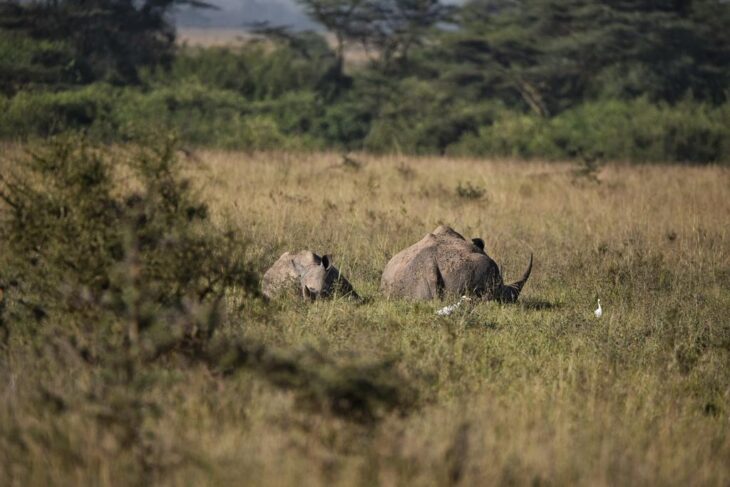By Dan Kaburu
NAIROBI,Kenya, Mar, 5 – Human wildlife conflict cases in Kenya have been on the rise in recent years, with statistics revealing even further drastic effects as a result of climate change.
The United Nation’s Intergovernmental Panel on Climate Change released a report on February,27,2022, which shows agricultural productivity has gone down by 34 per cent since 1961 and as a result led to game meat poaching.
Such a phenomenon could see communities living near national game reserves and parks engage in the illicit activity since some are not well secured. Already the Kenya Wildlife Service (KWS) has reported an increase in meat poaching in Tana River county with counties in Northern Kenya, the Coastal region also on high alert amidst increased poaching activities.
Samburu and Laikipia county have also been mapped out as possible hunting ground for poachers.
In July 2021, three men in Tana River were jailed for 15 years each and slapped with a fine of Sh3 million for killing 187 Dik Diks.
According to Jackson Kinyanjui, a Climate and Energy expert at EED Advisory, cases of poaching will increase in places such as Lake Naivasha eco-systems and other parts of Kenya like Northern Frontier Districts.
“We are likely to see more conflict between wildlife and people. Wild animals will be encroaching of peoples farms in search of pasture. In the past we have seen snakes enter people’s home in search of water. With increase in temperatures, these cases will double” Kinyanjui said.
In Kenya most farmers depend on rain-fed farming. Lack of applying modern technologies in farming leads to poor food production, which translates to food shortage. This could now lead to poaching for game meat.
The case is however different in Maasai Mara ecosystem.
Immanuel Kisemei, a conservationist in Mara eco-system says that poaching cases in Mara ecosystem are almost non-existent because the local communities have embraced conservation efforts by setting up conservancies from which they benefit from.
“The rising temperatures will definitely affect conservation as demand for pasture for both wildlife will increase. Reduced grasslands due to erratic weather is slowly making things tough for wildlife, livestock and people.” Said Kisemei.
Kisemei however admits that climate change has had a negative impact on the ecosystem, especially grazing lands for wildlife and cattle.
Elephant Population
Last year’s wildlife census shows that the elephant population in Kenya has increased by 12 per cent in just seven years.
As this is good news for the African jumbos, there are fears of increased conflict between elephants and humans, because of habitat loss for the elephants occasioned by human population increase, human activities, climate change and environmental degradation among other factors.
At the moment, the Amboseli ecosystem is facing serious threat from private developers who have set up farms in elephant corridors. Locals are bracing themselves for a bruising battle with the jumbos who use the corridor to connect to Chyulu Hills National Park.
Currently North Eastern Kenya is facing a serious drought the has killed hundreds of wildlife such as giraffes, antelopes, warthogs among others.
Should the temperatures keep on rising, more wildlife will die especially in regions prone to drought. It is a situation that has conservationists and government officials concerned.
Should the expected long rains from March to May fail, more wildlife in Northern Kenya will no doubtedly be lost.
The are concerns that the situation will get worse after global temperatures rose beyond 1.5 degrees. The situation will be more severe with irreversible impacts such as species extinction.
The IPCC report shows that by the year 2030, climate change will push 39.7 million Africans to extreme poverty. It is barely eight years to 2030.Experts are already Urgent action needs to be taken to address the soon coming climate crisis in Africa.
The writer,Dan Kaburu is an environmental,award winning journalist with K24TV. He has reported extensively on climate change and conservation efforts in Kenya, Africa and the world.
Want to send us a story? Contact Shahidi News Tel: +254115512797 (Mobile & WhatsApp)


